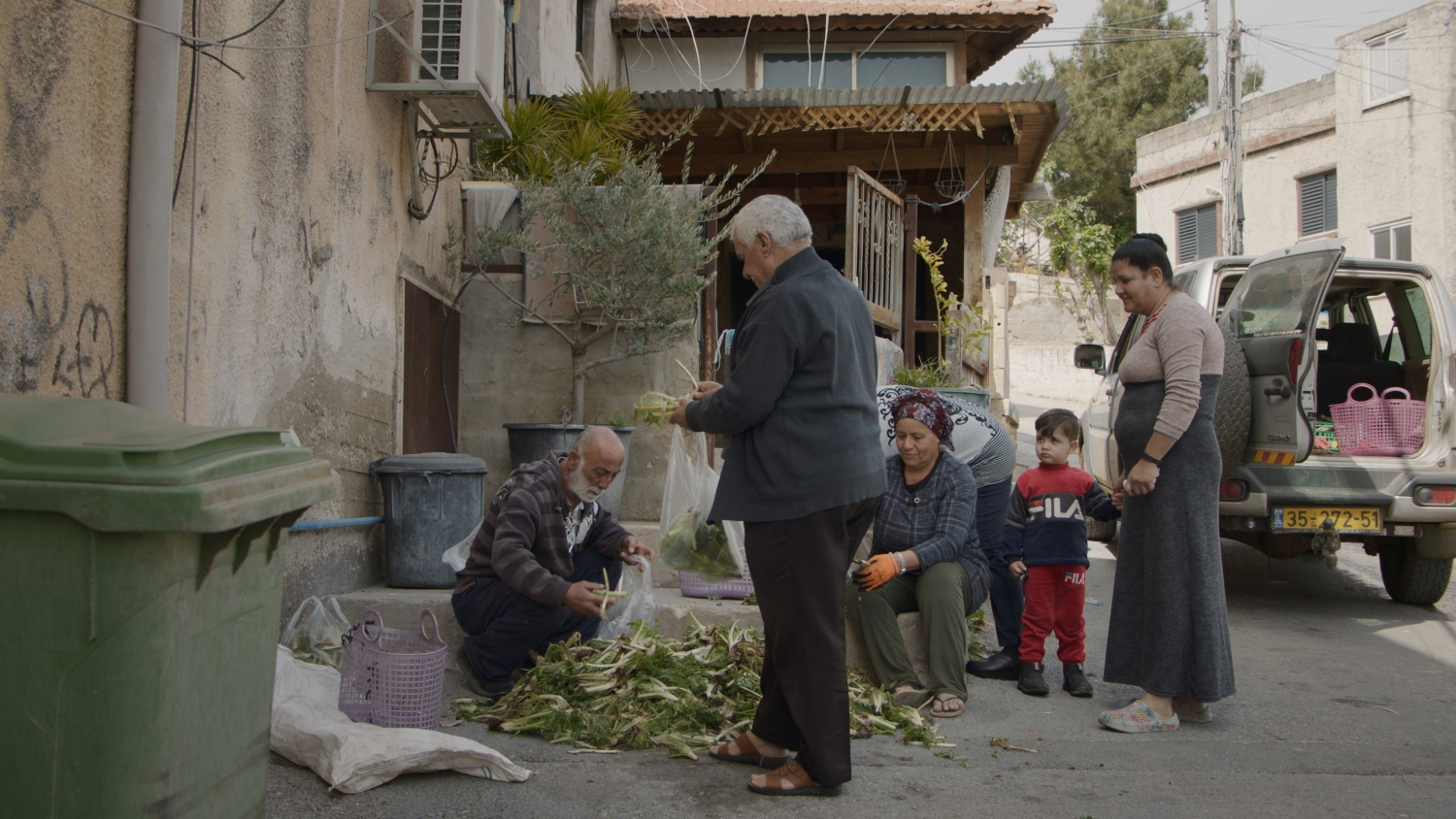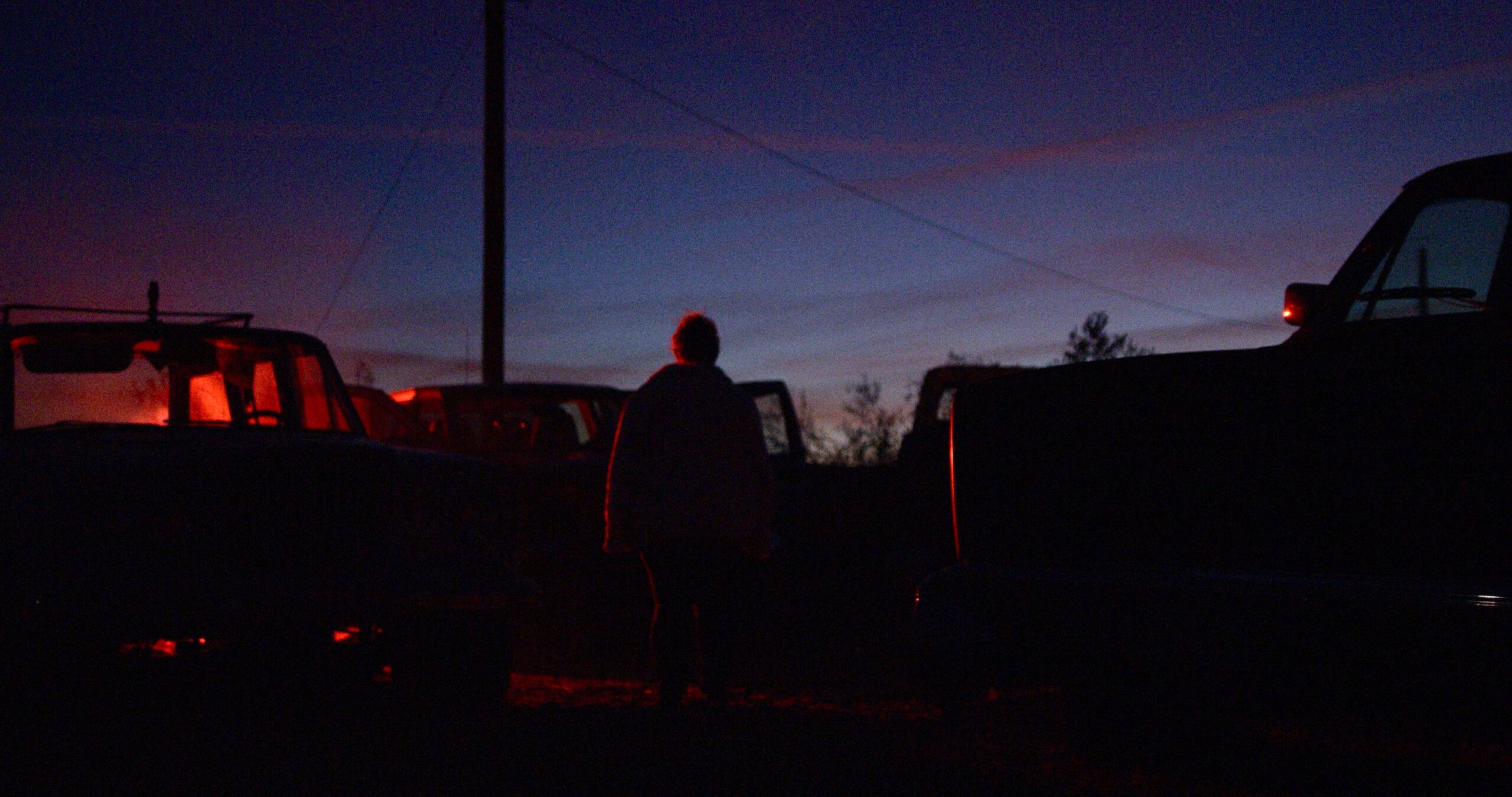Foragers
(Palestine, 65 min.)
Dir: Jumana Manna
Aziza, the mother of sculptor and filmmaker Jumana Manna, grew up foraging wild plants in her native village in Israel/Palestine. These include thyme, which is used to make za’atar, a Palestinian spice mix, and akkub, a thistly artichoke-like plant. While Aziza, her relatives, and many Palestinians continue to do traditional foraging, the practice has been criminalized by Israel’s Nature and Parks Authority under conservation laws. In Jumana Manna’s hybrid film, Foragers, she weaves documentary, fiction, and archival footage, creating an absurdist game of cops and robbers between the often elderly Palestinian foragers and the Israeli Nature Patrol.
The film opens with drone footage hovering high above a Palestinian man as he forages in the Golan Heights. Though the landscape is beautiful, music by Rashad Becker disturbs the serenity of the image, producing an eerie science fiction-like feeling of being watched by an alien entity. Manna then masterfully uses the camera to create the opposing point of view, switching to handheld footage rummaging through nature and hiding in bushes, observing the park rangers through the foliage. The contrast in visuals not only illustrates the ongoing chase between the foragers and the patrol, it also illuminates the distinction between the State and/or State power, versus the people, as seen by Manna. By using drone footage, the State is presented as an overseer detached from nature, while the foragers interact with nature and are embedded in it.
“I am part of nature. Nature is…me,” a man playing a forager says in a scripted encounter with an interrogator after being caught with a plastic bag full of za’atar. Manna wrote the lines in collaboration with Rabea Eghbarieh, a lawyer who has been involved in the fight to decriminalize the foraging of za’atar and akkoub in Israel. In the scripted interrogation scenes, the prosecutors remain faceless behind the camera, emphasizing their role as state operatives, as the camera focuses on closeups of the exasperated foragers, increasing the viewer’s empathy for them.
Each forager uses a different defense tactic with their prosecutors. Some argue their innocence and others unabashedly admit to foraging, stating they will never stop. One woman argues that harvesting the plants helps them grow back stronger, contradicting the stance of the Nature and Park Authority, that foraging is a large contributor to the extinction of the plants. While each argument is unique, a sentiment of resistance underpins them all. However, unlike many stories that are told about the Israel/Palestine conflict, Foragers depicts resistance that does not escalate to violence.
The occupation is not the main event for Manna, but a backdrop in which she explores familial and cultural traditions, and culinary practices that have been pitted against scientific methods of conservation; or, as the film gently implies, colonial methods of conservation. Although it is true that za’atar and akkoub have become increasingly scarce, Foragers examines how living under occupation complicates the politics of extinction.












